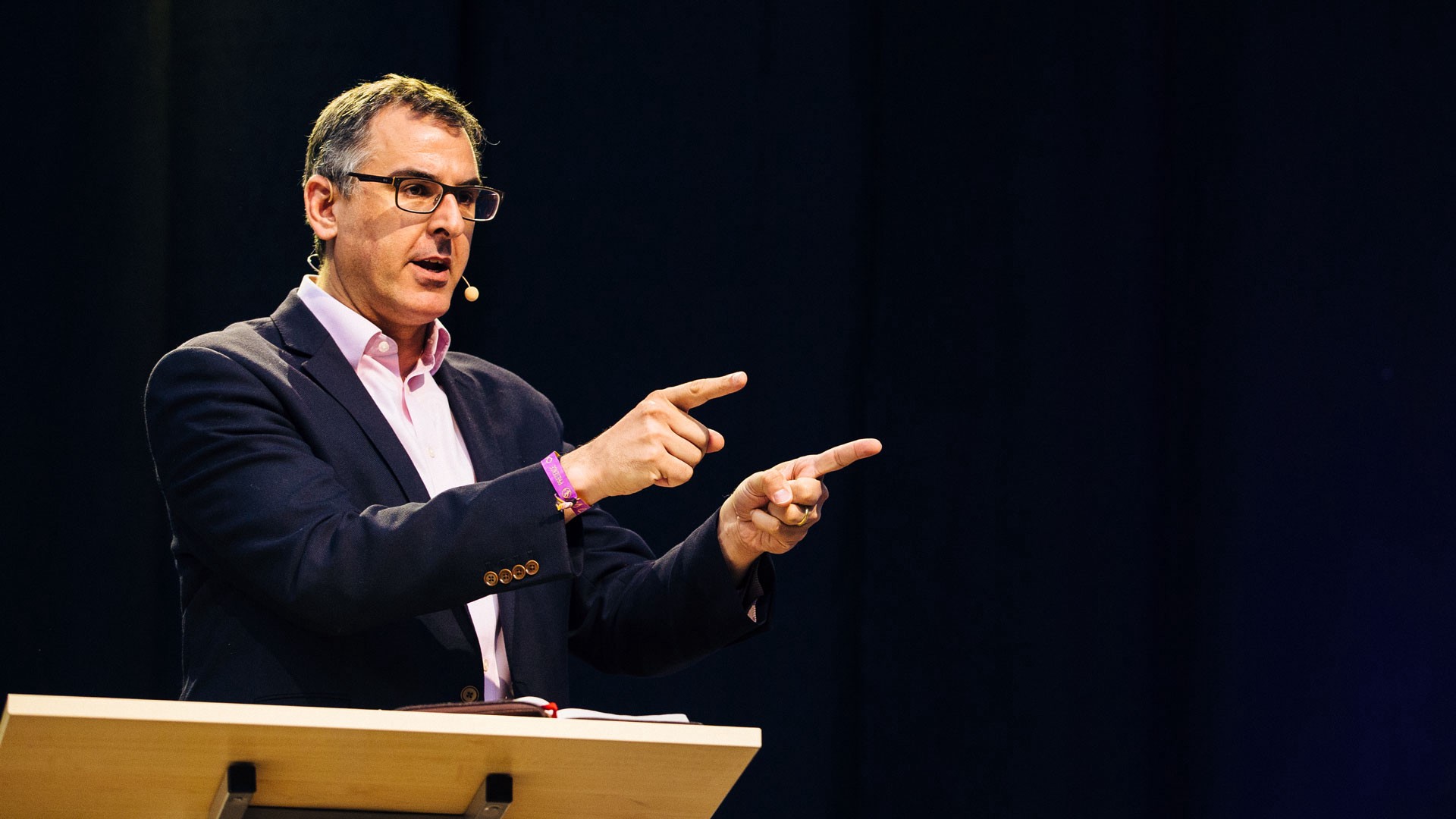
Jonah’s journey: lessons of hope for Europe today
A conversation with Michael Ramsden
“We desperately need a prophetic declaration of the gospel today. A gospel that interprets the times.”
Apologist and evangelist Michael Ramsden is clearly gifted at speaking into the student culture of the 21st century.
The International Director of Ravi Zacharias International Ministries (RZIM) had the chance to do just this over Easter when he spoke on the book of Jonah at the IFES European Student Evangelism Conference, Presence.
As someone who regularly speaks to students at universities across Europe, he is able to effectively gauge the temperature of Christian faith across the region’s campuses, and is aware of the current trends and tone of the debate. His words are a challenge to those of us tempted to be complacent about our faith.
Waking up and seeing signs of the kingdom
“Sometimes the Church goes to sleep.” he said. “We feel hopeless and think that God can do nothing. But there is always hope.
“I don’t want to be overly optimistic but I think there is more happening in terms of Christian mission at European universities now than there was five years ago. And equally, there was more happening five years ago than 10 years prior to that.
“A continued proclamation of the gospel is needed”, he added. “Europe needs a prophetic declaration of the gospel afresh today.”
Not in my city
Referring to Jonah, the repentance of Nineveh, and God’s subsequent forgiveness of the people, Michael said:
“One of the European narratives is that a revival like Nineveh can’t happen here. We sort of think ‘Well, it happens there but not in my city, or it happens in my city but not in my group.’
“My hope would be that we would not just pray, but actually have the motivation to pray.”
“We see that Jonah’s problem is not so much one of belief in God, but one of belief in the goodness of God.”
This represents a parallel today with those who question a God who loves unconditionally but also judges his people. This sees Christians increasingly coming up against a strong wave of secularist thinking, Michael added.
Prevalence of a victim culture
One aspect of this secularist wave working its way across Europe can be seen by the current prevalence of a victim culture.
“This is one of the largest cultural shifts I’ve ever seen” Michael said. “We are increasingly living in a victim culture driven by a sense of injustice.
“In victim cultures, the tendency to exaggerate pain or suffering is very high. We get status in society by being victims, and we define ourselves by the pain.”
He added that those who identify as ‘victims’ understand dialogue only in terms of a reaction of love or hate.
“If you disagree with someone, that can only be explained by the fact you must hate them. Therefore, society is divided into two groups: either you are being oppressed, or you are the oppressor. This is why so many Christian voices have gone silent for fear of being seen as oppressors.
“But if we buy into this kind of thinking then it’s the end of academia. The concept of university is born out of the idea that we can disagree with one another. And so we need to learn how to disagree.”
Michael drew a parallel between this trend of victim groups across Europe, and Jonah’s mission to Nineveh. At the time, Nineveh was one of the centres of evil in a domineering Assyrian empire. Jonah was afraid of confronting such a force, and wanted God to destroy the empire rather than forgive it, Michael said.
“One of the key aspects of a victim culture therefore, is that you don’t have the right to speak about my problems unless you share my background.”
Such a narrative has cut to the heart of society, including politics, with leaders not wanting to point the finger, Michael said.
“In the past, political leaders could at look at society and say what happened to you was wrong, and we should fix it. But also challenge people about where they were going wrong.
“Great political leaders are bigger than the politics of their time — but where are such leaders today? The kind of people who are bigger than the issue?”
Politicians afraid at the thought of offending are now doing the maths and advocating the complaints of various victim groups in order to clinch votes, he added.
Looking ahead with eyes of faith
Michael, who is also joint director of the Oxford Centre for Christian Apologetics, still believes passionately that a faithful Christian witness in the student world can make a significant impact in the years ahead.
“When I think about the next few years across Europe, my hope is that there would be a lot more Christian students across the region’s universities.
“The Presence conference was full of an amazing sense of optimism — not always typical of an evangelism conference — and I’m hoping it really resources students.”
Moving beyond our grievances and embodying the key elements of the gospel — love, reconciliation and forgiveness — offers the hope of change.
“The power of forgiveness can change a society” he said. “Forgiveness is easy in the abstract, but very difficult in practice.”
Respond
- Who are the people in your life that you find hardest to forgive?
- Do you have a heart for those who have wronged you to come to know the Lord?
